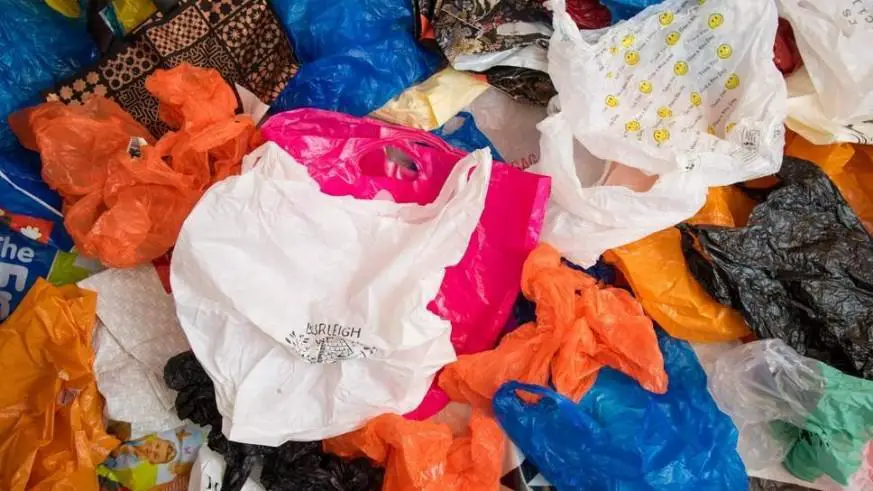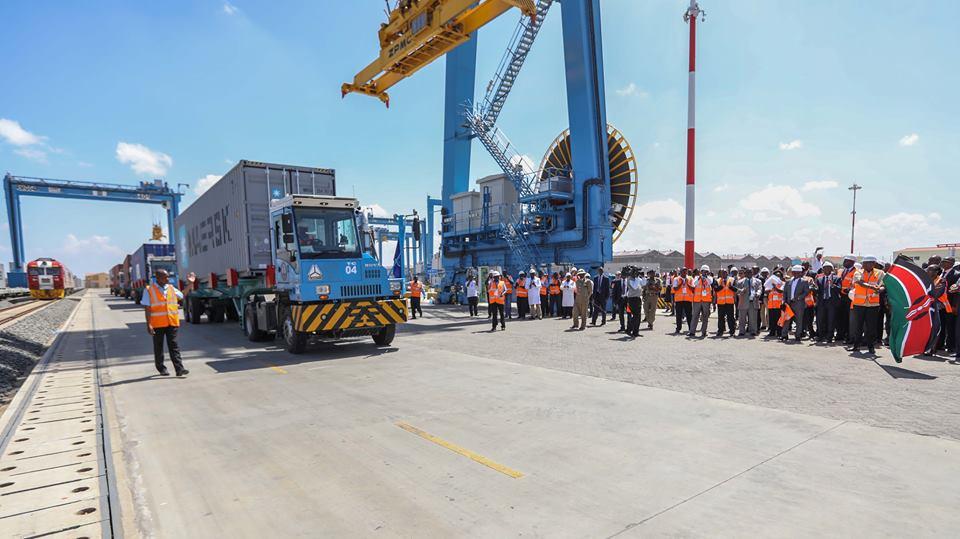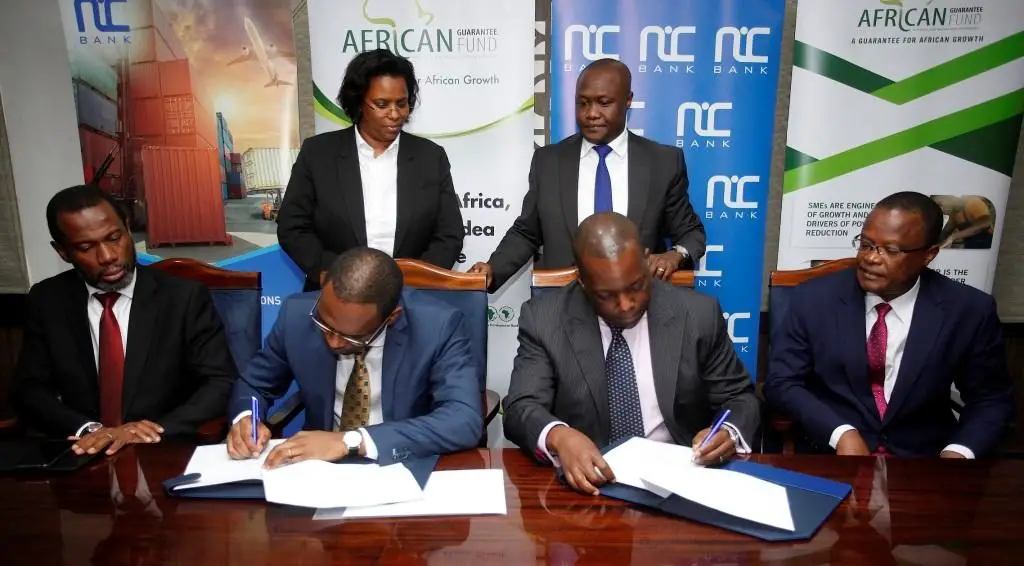- Kenya-Ethiopia Trade Relations: Legislators Advocate for Policy Alignment to Boost Ties
- Visualising the state of debt in Africa 2024
- Abu Dhabi radiates optimism as over 300 startups join AIM Congress 2024
- TLcom Capital Raises $154 million in Funding to Boost Its African Growth
- Africa’s $824Bn debt, resource-backed opaque loans slowing growth — AfDB
- LB Investment brings $1.2 trillion portfolio display to AIM Congress spotlight
- AmCham Summit kicks off, setting course for robust future of US-East Africa trade ties
- Why the UN is raising the red flag on the UK-Rwanda asylum treaty
Browsing: East Africa
Every plastic bag, paying little heed to thickness, will be restricted from being imported, sent out, made, sold, put away, or provided for use in Tanzania.
Visitors to East Africa’s most populous nation, nearly 57 million, have been told to expel plastic bags from their baggage before traveling.
WWF Nation Executive Dr. Amani Ngusaru has complimented the administration for venturing up the battle against plastic contamination in the nation. He said WWF Tanzania is inspired with the Tanzania government’s choice to boycott the utilization of plastic bags.
“Plastic is a number one polluter of environment and a silent killer of our natural environment and resources than most people understand. This is because it takes more than a hundred years for a single plastic bag to decay. We are happy that Tanzania is among the very few African countries to ban the use of plastic bags and we will work hard …
KCB Group shareholders have approved the proposal to acquire 100 per cent of the issued ordinary shares of National Bank of Kenya Limited (NBK) via share swap.
This approval follows the offer made by KCB Group on April 18, 2019 to acquire the shares of struggling NBK by way of a share swap of 10 ordinary shares of NBK for every one ordinary share of KCB. The transaction is subject to regulatory and NBK shareholders approvals.
The acquisition is part of KCB’s ongoing strategy to explore opportunities for new growth while investing in and maximizing the returns from its existing businesses, the management has said.
“For us, the acquisition is an opportunity to strengthen the deposit base and lending capacity, increase cost efficiencies due to economies of scale and boost transactional revenue through leveraging of technology. NBK maintains a strong deposit franchise and a wide branch network,” said KCB
Group …
By 2035, Africa which has one of the youngest populations in the world will have the largest workforce in the world.…
Diamond Trust Bank (DTB) has posted a 9.4 per cent growth in net profit for the first quarter ended March, buoyed by returns from investment in government securities and non-funded revenue.
The Nairobi Securities Exchange (NSE) listed lender closed the period with a Ksh1.97 billion profit after tax compared to Ksh1.80 billion posted last year.
The Group defied a tough operating environment to build customer deposits to Ksh275 billion, while the asset base grew to Ksh370 billion, entrenching the DTB’s position as a leading tier one bank in Kenya and the wider East African region.
On the back of an industry-wide subdued growth in loans, the group’s investment in Treasury Bills and Treasury Bonds grew to Ksh124 billion at the end of March 2019, compared to Ksh118 billion at the same time last year.
DTB’s non- performing loan book declined marginally to Ksh12.4 billion, from Ksh13.2 billion a year earlier, …
The Kenyan government has now resorted to vetting of importers and exporters of consolidated cargo in the latest move to curb tax evasion.
This comes in the wake of recent piling of cargo at the Nairobi Inland Container Deport (ICD) as authorities opted for 100 per cent verification on containers with consolidated goods.
This is on suspicion of under-declaration and misdeclaration by traders in a tax evasion racket that has been denying the government revenues amounting to billions of shillings.
Rogue state officials have been accused of colluding with unscrupulous traders to facilitate false declarations, denying the Kenya Revenue Authority (KRA) requisite taxes, such as import duty, a move said to have led to a loss of over Ksh100 billion(US$987.8million) in the recent past.
They are also said to allow in counterfeits into the market and through the transit route into the hinterland in exchange for kickbacks.
The verification process …
The Kenya Revenue Authority (KRA) has received a go-ahead to collect more than Ksh2.7billion (US$26.7 million) worth of monthly taxes on withholding tax on winnings from Sportpesa.
This follows a ruling by Milimani Commercial Courts Chief Magistrate, Peter Gesora, allowing KRA to collect withholding taxes on winnings from betting games on the Sportpesa platform among others, that have been failing to withhold tax on winnings.
The landmark ruling delivered on Thursday, May 23, 2019 arose from a 2014 suit filed by a Mr. Benson Irungu against Sportpesa Ltd trading as Pevans East Africa.
READ:Why Kenya will not collect taxes from sports betting
The suit sought to stop Sportpesa from deducting and remitting taxes arising from Mr Irungu’s and any other person’s winnings.
In his ruling last Thursday, Chief Magistrate Gesora while dismissing Mr Irungu’s case noted that the nature of sports betting, winnings are unpredictable and a player cannot …
NIC Bank Kenya has signed a Loan Portfolio Guarantee agreement amounting to Ksh 515,900,000 (USD5.1 million) with the African Guarantee Fund for Small and Medium-sized Enterprises (SMEs).
The partnership aims to unlock financing intended to facilitate the promotion, growth and development of SMEs in Kenya.
This comes in the wake of a continued credit crunch in the market, occasioned by the interest rate cap law in the country.
Since the law came into place in 2016, banks have been lending more to the government, shunning the private sector and individuals whom they term ‘high risk borrowers’.
READ:Why high risk borrowers , SMEs in Kenya could get easy loans
Speaking during the partnership launch, AGF Group Deputy CEO Jules Ngankam noted that the objective is to provide partial credit guarantees and capacity development to NIC Bank to stimulate financing of SMEs, thereby unlocking their potential to deliver exclusive growth in …
The Kenyan government has renewed its efforts to fight counterfeit goods and infringement of intellectual property, as counterfeiters continue to pose a threat to local manufacturers and traders.
In a new move, the country’s anti-counterfeit laws have been amended, putting in place new measures that will help fight the vice which takes up to USD300 million of local manufacturers’ market share annually, with the government loses USD80 million as potential tax revenue.
READ:Shocking counterfeit headaches crippling Kenya’s manufacturing sector
The State is also targeting proceeds of counterfeit trade mainly property, with top businessmen, politicians and high-net individuals being among the biggest perpetrators who could cross swords with the authority.
The Anti-Counterfeit Act, 2008 (amended) now extends the counterfeiting scope to include goods counterfeited outside Kenya, allowing for their impoundment.
This means that the Anti-Counterfeit Authority (ACA), formerly the Anti-Counterfeit Agency, now has the power to impound items counterfeited outside …
Coca-Cola Africa is partnering with African Utility Week and POWERGEN Africa to gather critical inputs and insights from leaders in the water sector, to help understand how the Company and other corporates can address Africa’s water security.
The initiative runs between May 14 and 16, at the Cape Town International Convention Centre.
According to Coca-Cola, the partnership is in line with the company’s approach to continually engage the right stakeholders, to ensure it is responsive and collaborative in its water stewardship strategy.
“The Company has made significant strides in improving its water-use ratio over the past ten years, and recently announced that three million more people across Africa have improved access to safe water under its Replenish Africa Initiative (RAIN) – the largest public-private partnership focused on water in Africa,” explains Dorcas Onyango: Head of Sustainability for Coca-Cola Southern and East Africa.
Coca-Cola Africa continues to fulfill its global goal …
Equity Bank has posted a 5.1 per cent rise in its profit for the first quarter of the year as the SMEs —focused—lender continues to navigate the interest rate cap regime in Kenya and a loan default trend in Tanzania.
The Nairobi Security Exchange (NSE) listed bank recorded a Ksh6.2 billion (USD61.3 million) net profit for the period, up from Ksh5.9 billion (USD58.4 million) in a similar period last year, buoyed by interest income and cost management.
READ:Equity net profit grows to Ksh19.8 billion on FinTech
Interest income from loans and advances rose to Ksh9.1 billion (USD 90million) up from Ksh8.7 billion(USD86 million) last year as the lender’s loan book swelled to Ksh305.5 billion (USD3.02 billion ) compared to Ksh271.1 billion (USD2.7 billion ) in March last year.
Interest earned from government securities equally went up to close the quarter at Ksh4.1 billion (USD40.5 million), compared to Ksh3.7 billion …














